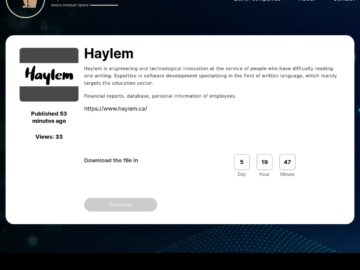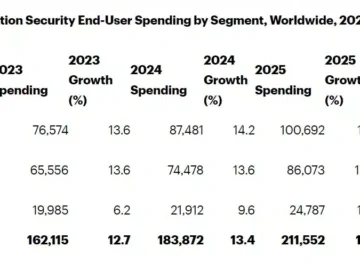At the forefront of digital transformation challenges for businesses globally is the mounting threat of ransomware attacks, with a growing chorus of consumers expressing alarm over the capacity of organizations to safeguard their data.
In a recent survey by Object First, a staggering 75% of respondents indicated they are prepared to abandon a brand that suffers a ransomware attack.
These figures underscore the critical need for businesses to safeguard their reputations by implementing comprehensive cybersecurity measures, notably in relation to ransomware attacks.
Consumer Concerns: A Rising Tide
Today’s consumers are not only aware but are deeply concerned about data security. The survey found that 81% of consumers are “very scared or worried” about their data being held by organizations without strong resilience against ransomware.
Once a company has suffered an attack, one in three consumers demands evidence of resilient backup and recovery strategies, while 30% lose all confidence in the company’s ability to protect data.
Moreover, consumers are increasingly holding businesses accountable for their cybersecurity failures.
If a company experiences a ransomware attack, 75% of consumers are ready to switch to a competitor. A second attack prompts 61% of consumers to reassess their negative perception of data protection and recovery practices.
The Generational Gap: Different Reactions to Ransomware
The impact of ransomware attacks and the corresponding damage to a company’s reputation also reveal interesting generational differences.
Gen Z, for example, is somewhat more forgiving, with 37% preferring an apology from companies that experience a ransomware attack. This stands in contrast to monetary compensation, favored by a quarter of the respondents from this age group.
However, older generations show a harder stance. Among Baby Boomers, 74% agree their trust in a company is irreparably damaged after suffering more than one ransomware attack, compared to just 34% of Gen Z.
These figures highlight the necessity of tailoring communications and mitigation strategies to different demographic segments in the wake of an attack.
Lincoln College: A Cautionary Tale
The story of Lincoln College serves as a sobering illustration of the potentially devastating impact of a ransomware attack.
After falling victim to a cyberattack in December 2021, the rural private college paid a ransom of $100,000 to have its data decrypted. However, the fallout from the attack was far from over.
In the wake of the attack, Lincoln College estimated it would take $50 million to reopen. This figure, in conjunction with the lingering impact of the COVID-19 pandemic, proved to be an insurmountable obstacle. After a 157-year history, the institution closed its doors for good in May 2022.
According to IBM’s 2022 data breach report, the average cost of a ransomware breach, excluding the cost of the ransom itself, was $4.54 million.
This figure includes various components of ransomware recovery, ranging from system restoration to crisis management and customer notifications.
Firms suffering from ‘destructive’ attacks, in which cybercriminals deploy malware to destroy data, faced even higher costs, averaging $5.12 million.
The Way Forward: Reputation Management and Robust Cybersecurity
“Given the indispensable role of data in today’s world, it is no wonder consumers are seeking greater protection as organizations generate and consume more data than ever. With the escalating ransomware threat, data protection must be a core concern for every business. While preventing a ransomware attack is the ideal scenario, it is not always feasible,” said David Bennett, CEO of Object First.
“Consumers take data protection seriously, and organizations must prioritize safeguarding consumer data against modern threats. This can be achieved by ingraining immutable data resilience as core to cyber security strategy.”
Given this reality, businesses must invest in robust cybersecurity measures and backup solutions to mitigate the impact of a potential ransomware attack.
They must also focus on reputation management strategies, as consumer perceptions can greatly influence a company’s ability to weather a crisis and thrive in its aftermath.
The integration of reputation management strategies into business continuity plans is crucial. Businesses should consider solutions like immutable on-premises backup storage, which provides secure, unalterable, and ransom-proof data storage.
Such an approach can play a significant role in preserving a company’s reputation and restoring consumer confidence in the wake of a ransomware attack.




